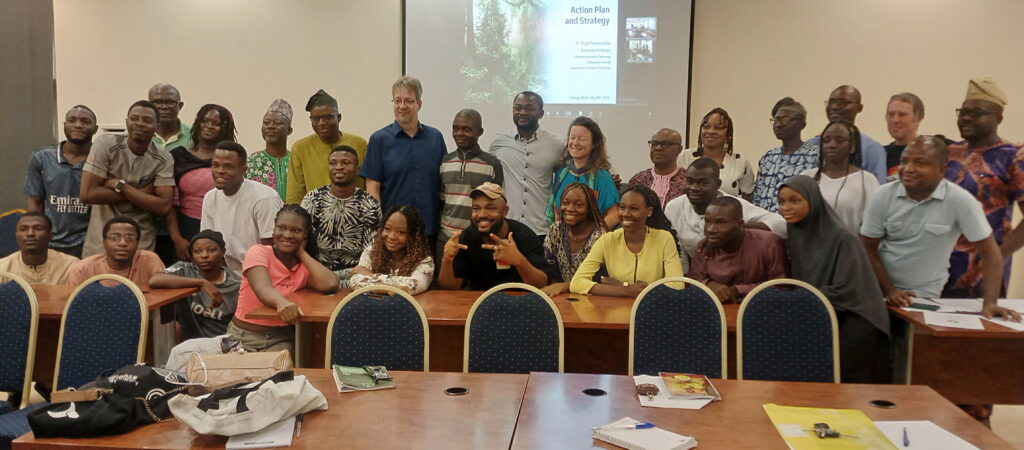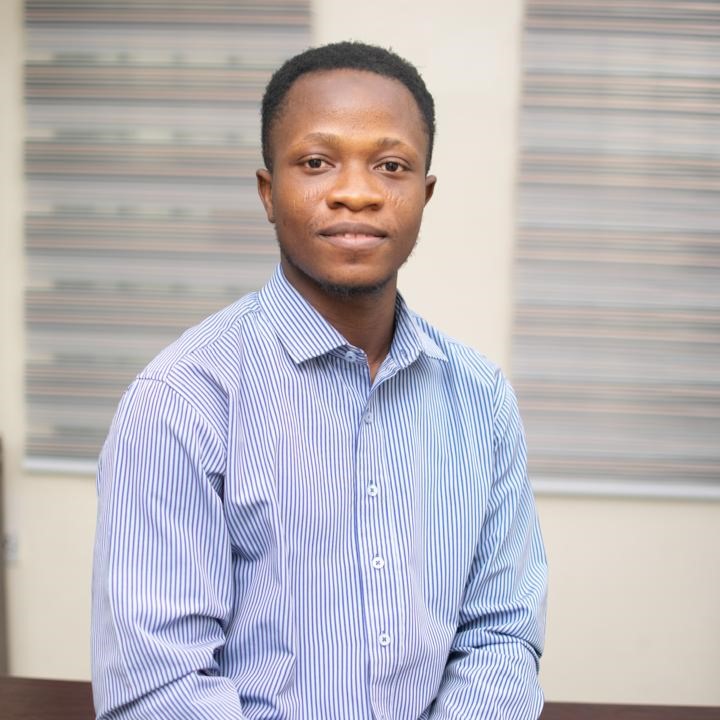In a world where digital innovation must now answer to environmental and climate realities, the University of Lagos (UNILAG) has played host to a dynamic week-long summer school aimed at preparing Nigerian students for a greener, more sustainable future in software engineering.
The summer school, which was held at the Arthur Mbanefo Digital Research Centre atUNILAG, brought together local academics, international experts, and spirited students for an immersive learning experience focused on sustainable computing.
The initiative, powered by the Software Engineers for Green Deal Hub (SE4GD), UNILAG, and its European consortium partners, was organised in partnership with the Department of Computer Science, UNILAG and supported by the African Engineering and Technology Network (AFRETEC).
At the heart of the programme was a powerful idea, to train the next generation of software engineers not only to code, but to care about the environment, resource constraints, and societal impact.
The training focused on instilling values aligned with the European Union Green Deal, African Union Agenda 2063, and Sustainable Development Goals (SDGs) 4 (Quality Education) and 13 (Climate Action).
Sustainability in product development
The convener of the programme, Adewole Rufai, a senior lecturer at the Department of Computer Science, UNILAG, highlighted Nigeria’s limited resource challenges, stressing the importance of sustainability in Africa.
Sustainable computing, he said, is really about doing more with less. “It is about making efficient use of what we have to positively impact socio-economic outcomes. Addressing sustainability in digital product development helps reduce carbon emissions.
“If the Global North and South come together to develop frameworks that address sustainability, the world becomes a better place for all. This is the core motivation behind embedding sustainability in software engineering,” he said.
Mr Rufai further explained that every time developers make smarter, cleaner choices in how software is built, from reducing energy use to ethical data handling, it creates a ripple effect that ultimately benefits users, businesses, and the environment.
“Sustainable software design extends to daily activities, from the apps we use for banking to how we connect on social media. If designers keep sustainability in mind, it will eventually benefit the end users,” he reiterated.
Bridging knowledge gaps
One of the facilitators, Shola Oyedeji, a Finland-based expert and Postdoctoral researcher at LUT University, stressed the need for deeper stakeholder engagement between academia, government, and industry.
Mr Oyedeji urged Nigerian universities to consult with industry players to ensure that graduates are both employable and future-ready.
He underscored the goal of not just training students but also ‘educating the educators’ to think differently about the future of software development in resource-constrained environments like Nigeria.
According to him, the summer school wasn’t just about delivering lectures but about building a local hub at UNILAG that mirrors international standards while staying grounded in African realities.
“We worked collaboratively with students and lecturers to rethink how software education should be taught across Africa.”
Graduates without industry skills
Another facilitator, Colin Venter, an associate professor at the University of Limerick and Research Software Engineer at CERN, noted a growing concern that graduates often leave school without the real-world skills the industry demands.
“We are seeing a gap between university education and what’s needed on the job and that’s why a curriculum was designed to be problem-solving driven. We are not only teaching code, we’re teaching how to think sustainably and ethically.”
Mr Venter explained that sustainable software design is more than conserving energy but about considering the long-term impact of the digital products created on both people and the planet.
He said: “What it means to me is that, when we think about green, we think about energy consumption and sustainability. So it’s about how you create software that doesn’t harm the environment and society.”
Venter, an associate professor at the University of Limerick and Research Software Engineer at CERN, praised the creativity of the students and emphasised the need for African-led solutions.
Other facilitators, Birgit Penzenstadler, an associate professor at Chalmers University, Sweden and Jari Porras, a visiting professor from the Lappeenranta-Lahti University of Technology (LUT) emphasised the need to eliminate academic barriers and build local capacity to deliver the same quality of education available in Europe, right here in Nigeria.
Mr Porras who is also the coordinator of the Erasmus Mundus programme, SE4GD, highlighted the importance of developing regional hubs for green software education.
“Sustainability is a global issue, emissions in one part of the world affect all of us. That is why it’s essential to collaborate across borders,” he noted.
While Ms Penzenstadler noted that sustainability spans water, health, transport, and technology, she expressed that universities must move beyond rigid silos to address it.
“We bring ideas, but the knowledge of what works in Nigeria must come from Nigerians,” she stated.
Impact

A final-year Computer Science student of UNILAG, Obi Victor described the experience at the summer school as a turning point in his academic journey.
“This summer school changed how I think about coding. I never realised how our lines of code could affect the environment but now I know that writing sustainable code can actually reduce carbon emissions. I plan to share this knowledge with others.”
Another participant simply identified as Smile, shared how the programme allowed her to work with lecturers on building the curriculum for a new MSc programme.
“I gave two presentations and worked on defining learning outcomes. It was eye-opening and insightful. I now understand what sustainable software education entails.”
Also, Obinna Onyedika, a final-year student and software director at UNILAG commended the facilitators for the knowledge shared, saying, the focus is no longer just about building apps, but about energy usage, ethical implications, and long-term impact.
UNILAG as hub for green tech education
One of the standout achievements of the summer school was the development of proposed Master’s degree curricula in Sustainable Software Engineering and Sustainable Computing.
The programmes, which are pending approval from UNILAG and Nigeria’s National Universities Commission (NUC), aim to train students to build software systems that support resilience, sustainability, and social good.
Throughout the week, international experts collaborated with Nigerian scholars and students from various fields, including Computer Science, System Engineering, Mathematics, and Curriculum Development while institutions such as LUT University (Finland), University of Gothenburg (Sweden), University of Limerick (Ireland), and Hochschule Furtwangen University (Germany) contributed to the training.
Mr Rufai disclosed that plans are underway to make the initiative an annual one, with more masterclasses, continued cross-border collaborations, and a Memorandum of Understanding (MoU) to institutionalise the partnership.
“We are committed to making UNILAG a centre for sustainable software education in Africa,” he said while expressing gratitude to funders such as Streatfort and AFRETEC whose support made the training possible.
During a meeting at the office of the vice chancellor of UNILAG, Mr Oyedeji explained that the goal of the summer school was to prepare students educators to be future-ready for sustainable software engineering in a resource-constrained environment like Nigeria.
Expressing her support for the programme, the vice chancellor, Folasade Ogunsola, a professor, stressed the need to get the right government policy to ensure sustenance.
She appreciated the facilitators for their contributions to the academics and the nation’s industrialisation, assuring of her support to ensuring the success of the next edition of the summer training.


